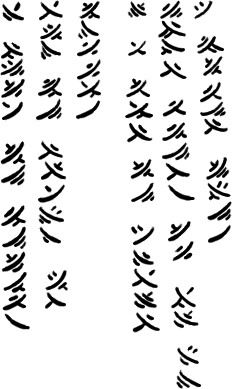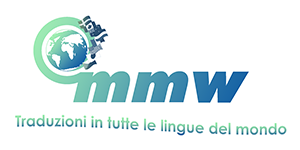
Narkhokul
The Narkhokul alphabet was created by Katie Molnar to write a fictional
language. The name Narkhokul means “the signs of the land,” in reference
to the fictional place where Draphei, the language Narkhokul is used to
write, is spoken. That place is Narthrall, part of the fictional world
Katie and others collaborate on as a setting for stories and role-playing games.
Notable features
- Type of writing system: alphabet
- Direction of writing: top-to-bottom in columns from left to right.
- Narkhokul’s glyphs are constructed by combining a consonant with the vowel
that comes after it (if any). The full stop character also functions as a vowel
holder for word-initial vowels or for the second vowel of a glide (e.g. the
sound of English “pay”, [pei], would be written /pe/ /i/, and the /u/]
would get a vowel holder). - The language contains no voiced plosives. The only voiced consonants are
/r/, /l/, /m/, and /n/. - Very old documents omit the vowel marks, which were invented later on in
the life of the language. In this respect, Narkhokul is similar to Hebrew.
It is common for hastily written notes and other informal documents to leave
them out as well, as a kind of shorthand. When they are omitted in a formal
document, it represents an appeal to authority or an attempt to invoke an
air of mystery and significance. - The fact that all of the symbols are ambiguous when rotated 90 degrees
is intentional and can be exploited in steganography and poetry.
Narkhokul alphabet
Consonants

Vowels

Pronunciation
Most consonants are pronounced as they are in English. The non-obvious ones,
/th/, /sh/, /kh/, and /r/, should be pronounced as in “thin,”
“ship,” “loch,” and “red,”
respectively. Alternatively, /r/ can be pronounced as an alveolar trill, as
in Spanish rojo (“red”) or Russian
рыба (“fish”), or any
similar rhotic sound. It is also permissible to pronounce any unvoiced consonant
with its voiced form, e.g. /t/ can be pronounced like [d], /f/ like [v], and so on.
The vowels; /a/, /e/, /i/, /o/, and /u/; are pronounced as in “father,”
“pet,” “pizza,” “bone,” and
“sue,” respectively, but they may alternatively be pronounced
with any similar vowels as long as they do not become ambiguous.
Sample Text

Transliteration
Si shenokai lan khenkalpe, tilom khun tetaimos lop khamkekekhi. Ma pe pakhte
lan osetisate netherte pelent, ake shisa som o fulapente naron.
Translation
All human beings are born free and equal in dignity and rights. They are endowed
with reason and conscience and should act towards one another in a spirit of brotherhood.
(Article 1 of the Universal Declaration of Human Rights)
